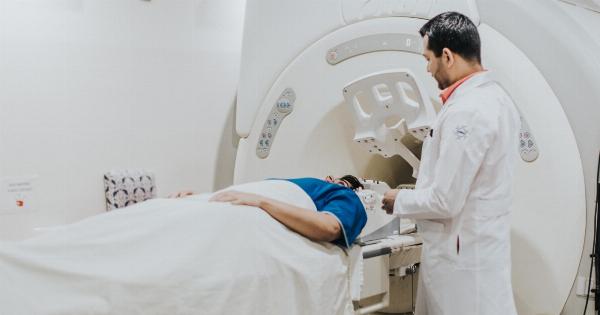Dizziness is a sensation of feeling lightheaded, unsteady, or as if the surroundings are spinning. It is a common problem that can affect people of all ages.
Dizzy spells can be caused by various factors, such as certain medical conditions, medications, or even everyday situations. Understanding the common triggers and remedies for dizzy spells can help manage and prevent this uncomfortable sensation.
In this article, we will explore some of the most frequent causes of dizziness and provide effective remedies to alleviate the symptoms.
1. Dehydration
One common trigger for dizzy spells is dehydration. When your body doesn’t have enough water, it can lead to a drop in blood volume, causing a decrease in blood flow to the brain.
This, in turn, can result in feelings of dizziness, weakness, and even fainting. To prevent and treat dehydration-related dizziness, ensure you drink an adequate amount of water throughout the day (around 8 cups). Hydration is particularly important during hot weather or physical activities.
2. Inner Ear Problems
The inner ear plays a vital role in maintaining balance. Issues with the inner ear, such as benign paroxysmal positional vertigo (BPPV) or Meniere’s disease, can cause recurring episodes of dizziness.
BPPV occurs when small crystals in the inner ear become dislodged, leading to incorrect signals being sent to the brain. Meniere’s disease, on the other hand, is characterized by excessive fluid build-up in the inner ear. If you experience frequent dizziness related to inner ear problems, it is best to consult an ENT specialist for proper diagnosis and treatment.
3. Medications
Several medications have dizziness listed as a potential side effect. Blood pressure medications, antidepressants, sedatives, and certain antibiotics are commonly associated with dizziness.
If you notice dizziness after starting a new medication, consult your doctor. They may be able to adjust the dosage or prescribe an alternative medication that doesn’t produce the same side effects. However, do not stop taking any prescribed medications without your doctor’s guidance.
4. Low Blood Sugar
Low blood sugar, or hypoglycemia, can cause dizziness as well. When your blood sugar levels drop too low, your brain may not receive enough fuel to function properly. This can result in dizziness, confusion, and weakness.
To prevent low blood sugar-induced dizziness, ensure you maintain a balanced diet with regular meals and snacks, especially if you have diabetes. If you experience frequent episodes of low blood sugar, consult a healthcare professional for further evaluation and guidance on managing your condition.
5. Anxiety and Panic Disorders
Anxiety and panic disorders can trigger dizziness in certain individuals. When you are anxious or experiencing a panic attack, your body’s stress response is activated, leading to various physiological changes.
Dizziness may occur as a result of hyperventilation, increased heart rate, or a feeling of being overwhelmed. Managing anxiety and panic disorders through therapy, relaxation techniques, and medication can help reduce the frequency and intensity of dizzy spells.
6. Orthostatic Hypotension
Orthostatic hypotension refers to a sudden drop in blood pressure upon standing up from a seated or lying position. This drop in blood pressure can lead to dizziness, lightheadedness, and even fainting.
Orthostatic hypotension may be caused by dehydration, certain medications, or underlying medical conditions. To manage orthostatic hypotension-related dizziness, try to stand up slowly, especially after prolonged periods of sitting or lying down. Staying hydrated and avoiding alcohol can also help alleviate symptoms.
7. Motion Sickness
Motion sickness is a common form of dizziness that occurs when there is a disconnect between what your eyes see and what your inner ears sense. This often happens during car rides, boat trips, or flights.
Symptoms may include nausea, vomiting, and dizziness. To prevent motion sickness, try looking at a fixed point in the distance, keeping your head still, and avoiding excessive alcohol or heavy meals before travel. Over-the-counter medications, such as antihistamines, can also help alleviate symptoms.
8. Migraines
Migraines are severe headaches that can be accompanied by dizziness, visual disturbances, and sensitivity to light and sound. Vestibular migraines, in particular, involve dizziness and balance problems.
These dizziness spells can last from minutes to hours and significantly impact daily functioning. If you suspect migraines as the cause of your dizziness, consult a healthcare professional for proper diagnosis and management. They may recommend specific medications or lifestyle changes to reduce the frequency and severity of migraines.
9. Anemia
Anemia occurs when your body lacks enough healthy red blood cells to carry adequate oxygen to your tissues. This can lead to dizziness, fatigue, and weakness.
Iron deficiency anemia, in particular, can cause dizziness due to the reduced oxygen-carrying capacity of the blood. If you suspect anemia as the cause of your dizziness, consult a healthcare professional for blood tests and further evaluation. Iron supplements, along with dietary changes, may be recommended to address the underlying cause.
10. Remedies for Dizzy Spells
While identifying and addressing the underlying cause of dizzy spells is essential, there are several general remedies that can help alleviate the symptoms:.
- Rest and relax: Find a calm and quiet environment to sit or lie down until the dizziness subsides.
- Breathing exercises: Practice deep breathing exercises to reduce anxiety and promote relaxation.
- Ginger: Ginger has been known to help with dizziness and nausea. Consider consuming ginger tea or taking ginger supplements.
- Avoid sudden movements: Make slow and deliberate movements to minimize the risk of worsening dizziness.
- Hydration: Ensure you are adequately hydrated by drinking enough water throughout the day.
- Regulate blood sugar levels: If you have diabetes or experience frequent low blood sugar, make sure to eat balanced meals and monitor your blood sugar levels.
- Manage stress: Find healthy ways to cope with stress, such as exercise, mindfulness, or engaging in hobbies.
- Physical therapy: In some cases, physical therapy exercises may be recommended to improve balance and reduce dizziness.
- Avoid triggers: Identify and avoid specific triggers that worsen your dizziness, such as certain foods, bright lights, or overwhelming environments.
- Medication adjustments: If dizziness is a side effect of a medication you are taking, consult your doctor to discuss potential adjustments or alternatives.
Dizzy spells can significantly impact daily life, but with proper management and awareness of common triggers, their frequency and intensity can be reduced.
If you experience severe and persistent dizziness, accompanied by other concerning symptoms, it is recommended to seek medical attention for a comprehensive evaluation and appropriate treatment.




























